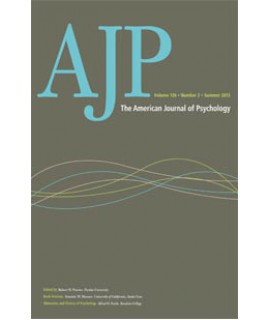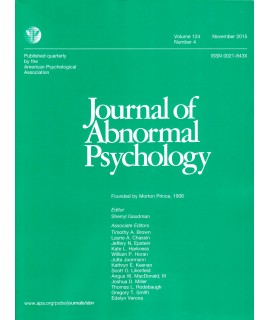Psychological Methods
INFO
- - Product Code: 4 issues per year
- - Availability: In Stock
 Call for Price
Call for Price
Psychological Methods is devoted to the development and dissemination of methods for collecting, analyzing, understanding, and interpreting psychological data. Its purpose is the dissemination of innovations in research design, measurement, methodology, and quantitative and qualitative analysis to the psychological community; its further purpose is to promote effective communication about related substantive and methodological issues.
The audience is expected to be diverse and to include those who develop new procedures, those who are responsible for undergraduate and graduate training in design, measurement, and statistics, as well as those who employ those procedures in research.
The journal solicits original theoretical, quantitative, empirical, and methodological articles; reviews of important methodological issues; tutorials; articles illustrating innovative applications of new procedures to psychological problems; articles on the teaching of quantitative methods; and reviews of statistical software.
Submissions will be judged on their relevance to understanding psychological data, methodological correctness, and accessibility to a wide audience. Where appropriate, submissions should illustrate through concrete example how the procedures described or developed can enhance the quality of psychological research.
The journal welcomes submissions that show the relevance to psychology of procedures developed in other fields. Empirical and theoretical articles on specific tests or test construction should have a broad thrust; otherwise, they may be more appropriate for Psychological Assessment. Similarly, articles of interest to only a single subdiscipline of psychology may typically be more appropriate for a journal devoted to that specialty unless they make an exceptional contribution to the literature.




/Psychological_Methods-413x489.jpg)
/Psychological_Methods-101x125.jpg)
/Psychological_Methods-550x652.jpg)


/Journal_of_Experimental_Psychology_General-270x320.jpg)
FACEBOOK